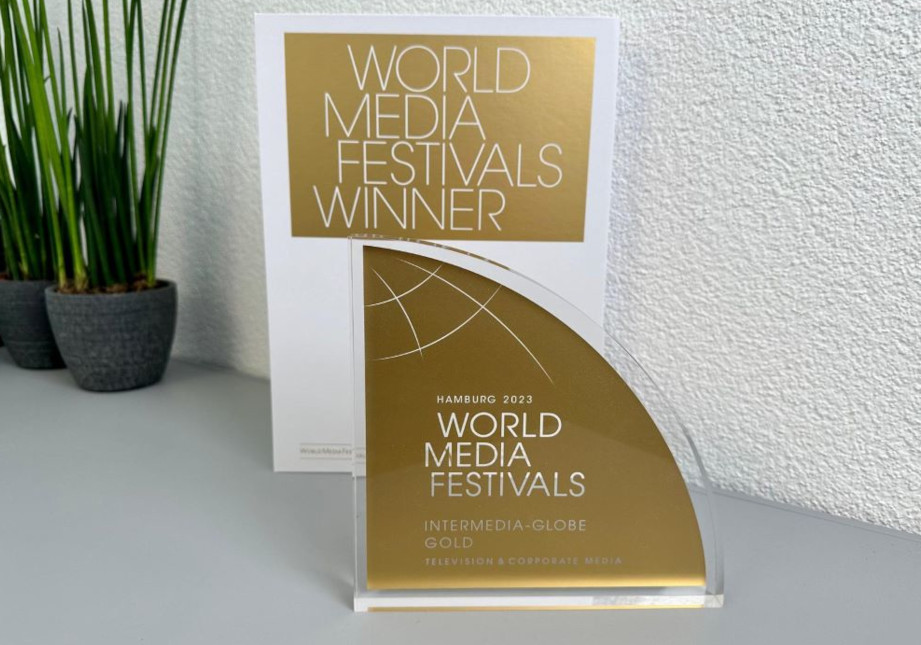Research - 22.08.2023 - 11:00
Playfully Healthy: HSG Short Film "Healthification" receives Gold Award
Tobias Kowatsch, HSG Professor of Digital Health Interventions, believes that delivering health information should be as captivating as our favourite Netflix series. His short film highlights how digital health interventions promote a healthy lifestyle and thus can prevent chronic diseases.

Tobias Kowatsch, HSG Professor of Digital Health Interventions, believes that delivering health information should be as captivating as our favourite Netflix series. His short film highlights how digital health interventions promote a healthy lifestyle and thus can prevent chronic diseases.
Prof. Dr. Tobias Kowatsch conducts research at the Universities of St.Gallen, University of Zurich, and ETH Zurich on how we can seamlessly integrate preventive health measures into our daily lives. The short film "Healthification" from the animated film series Academic GIFts captures his research project concisely: We do too little for our health because it's often bothersome or we lack motivation. Therefore, health information should be conveyed in a playful manner, transitioning from gamification to "Healthification."
For the innovative storytelling approach of their short film, Professor Kowatsch and the agency Zense in Hamburg were honoured with the Gold Award at the "World Media Festivals 2023". For over 20 years, the festival has recognized media excellence in the realms of information, education, and entertainment.
Creative Video Format
What sets the short film "Healthification" apart? Innovative design and surprising storytelling, as cited by the jury of the "World Media Festivals 2023." Indeed, the clip explains the connection between diagnosing a non-communicable disease and its playful treatment in a simple, creative manner.
Scientific Results in a Brief Format, Artfully Packaged and Concisely Explained: This is what the series Academic GIFts offers. In animated short films, researchers from the University of St.Gallen playfully explain their research. Using illustrations and graphic elements, text and typographic elements, "Academic GIFts" seeks to bring knowledge and entertainment together. The series covers topics from all fields and academic backgrounds found at the University of St.Gallen. The 24th episode, "Healthification," marks the end of the series.
You can access the playlist with all 24 episodes here.
Promoting Healthy Habits
The theme of "Healthification" is highly relevant. 70% of all causes of death are attributed to non-communicable diseases. Non-communicable diseases include diabetes, cancer, cardiovascular diseases, Alzheimer's, chronic back pain, or mental and neurological disorders. The cause is often unhealthy lifestyle habits. The problem arises when they become chronic. These diseases are increasing worldwide, posing significant psychological and financial challenges for those affected.
Changing lifestyles can have a significant impact. Health can improve with increased physical activity or with reduced alcohol consumption. While various studies have investigated the benefits of such health measures, Tobias Kowatsch's research suggests that individuals from socially disadvantaged backgrounds are often missing or underrepresented in these studies. "As a result, the interventions ultimately fail to reach those who need them most," explains the professor. Therefore, he suggests the concept of a "health Netflix."
Embracing Stories and Fun
"We've all experienced it. Integrating healthy habits into our daily lives often isn't enjoyable. It's a completely different story when it comes to our favourite series on Netflix and similar platforms. Episode by episode, often spanning multiple seasons, we engage and cheer for our heroes," says Kowatsch. So, what can we learn from popular TV shows like "Stranger Things," "Squid Game," or "Emily in Paris" for digital health interventions?
The digital delivery of health information should be just as entertaining as our favourite series. Stories play a crucial role in achieving this. "This is the most effective way to motivate people and their environments to make long-term efforts for their health, and the information remains in memory longer. That's what we aimed to convey with our short film," summarizes Tobias Kowatsch. Digital coaches and chatbots should represent interesting characters with whom we can identify. Additionally, these digital tools should involve health experts, family members, and friends of those affected. The essence of the "Healthification" method, according to Kowatsch, is to bring health measures into one's comfort zone.
Tobias Kowatsch has been involved with the topic for quite some time and, among other things, received the "HSG Impact Award" in 2018 for his project "Mobile Coach."